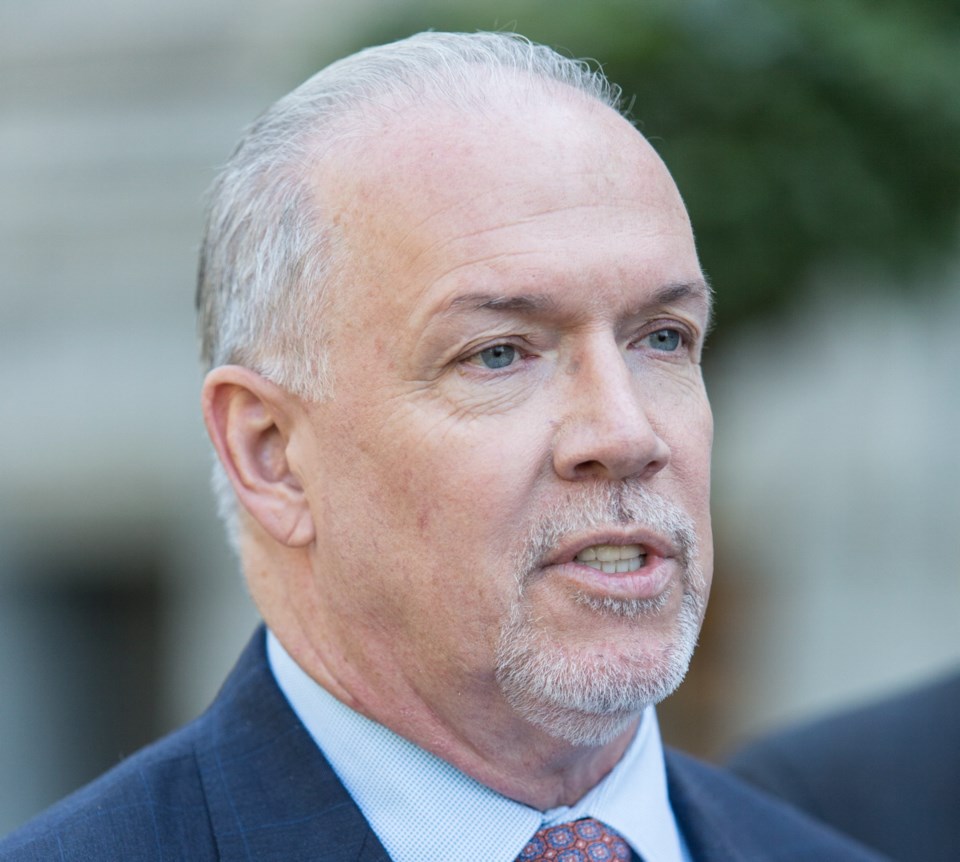Provincial politicians return to Victoria Friday for a fall session of the B.C. legislature that likely will feature bills to ban union and corporate political donations, toughen lobbying rules and change the timing of general elections.
It’s the first sitting since the NDP and Greens joined forces in June to defeat Christy Clark and her B.C. Liberal government on a confidence vote. Clark subsequently resigned and NDP Leader John Horgan was sworn in as the new premier two weeks later, ending 16 years of Liberal rule.
Horgan’s government will open its inaugural session with a throne speech Friday and a budget update Monday. Solicitor General and Government House Leader Mike Farnworth said the new government is eager to start delivering on the promises it made during the May election campaign.
“We’ve waited a long time to get into government, and I think people are really excited and upbeat about not only the tasks, but the opportunities to make real change that has a positive impact for people,” he said.
The pact between the NDP and Greens specifies that a number of bills must be introduced in the first session, including legislation to:
• ban corporate and union political donations, and place limits on individual contributions
• increase penalties for lobbying violations and impose a multi-year prohibition on lobbying by former senior public-office holders
• hold a provincial general election every four years on a fixed-date in the fall, instead of May
• establish that a referendum on proportional representation will take place during the municipal elections in fall 2018.
Cowichan Valley Green MLA Sonia Furstenau said she expects to see all those bills introduced. “Everything that’s in [the agreement] that was identified as being in the first session is going to need to be there,” she said.
Furstenau said she hopes to see a new spirit of co-operation in the legislature. The Greens, she said, will be critical of the government when necessary, but are more interested in working together to develop good public policy.
“There’s this enormous appetite to see a different approach, a non-adversarial, non-hyper-partisan approach. You don’t have to agree on everything — and certainly we’re not going to agree on everything — but it can be a constructive disagreement.”
One of the first tasks facing MLAs will be the selection of a Speaker. No party has a majority of seats in the legislature. The alliance of 41 NDP MLAs and three Greens initially had just a one-vote edge over the 43 Liberals. In that instance, if a Green or NDP MLA became Speaker, that would leave the two sides deadlocked at 43 votes each and require the Speaker to break ties.
But Clark’s resignation as Liberal leader and an MLA has given the NDP-Green alliance more breathing room in the legislature — at least until there is a byelection to replace her.
“That shifted the political landscape,” said Michael Prince, Lansdowne professor of social policy at the University of Victoria.
“The Liberals now will be very much preoccupied with a [leadership] campaign.”
The Liberals, who did not respond to a request for comment, incorporated many of the NDP and Green promises in their last throne speech before losing power. They will have to find a way to criticize the government for moving ahead on similar policies. Prince said the Liberals could find “wiggle room” by focusing on the NDP’s approach, the speed at which it tries to do things and associated costs.
He expects to see the Liberals go after the NDP for cancelling or postponing major capital projects, and by questioning what they are doing to create jobs and wealth.



